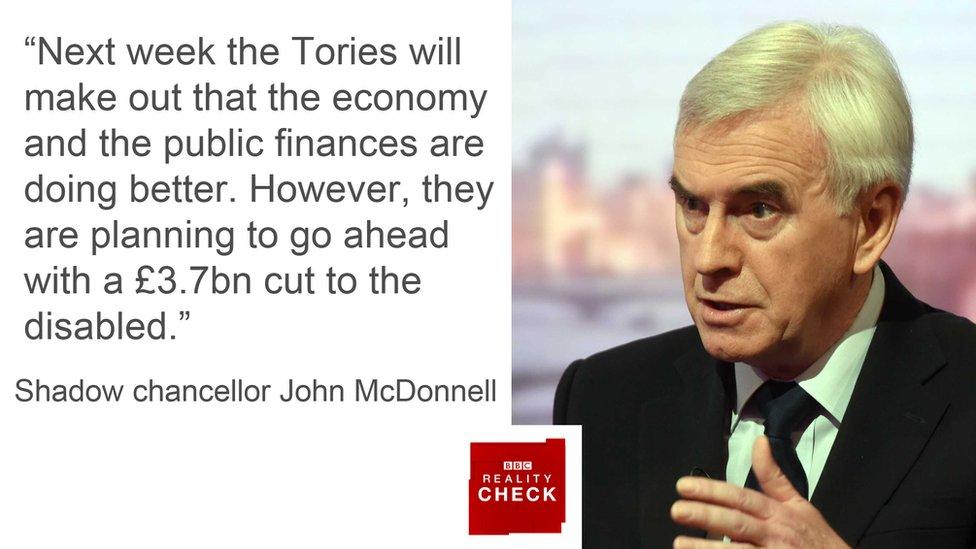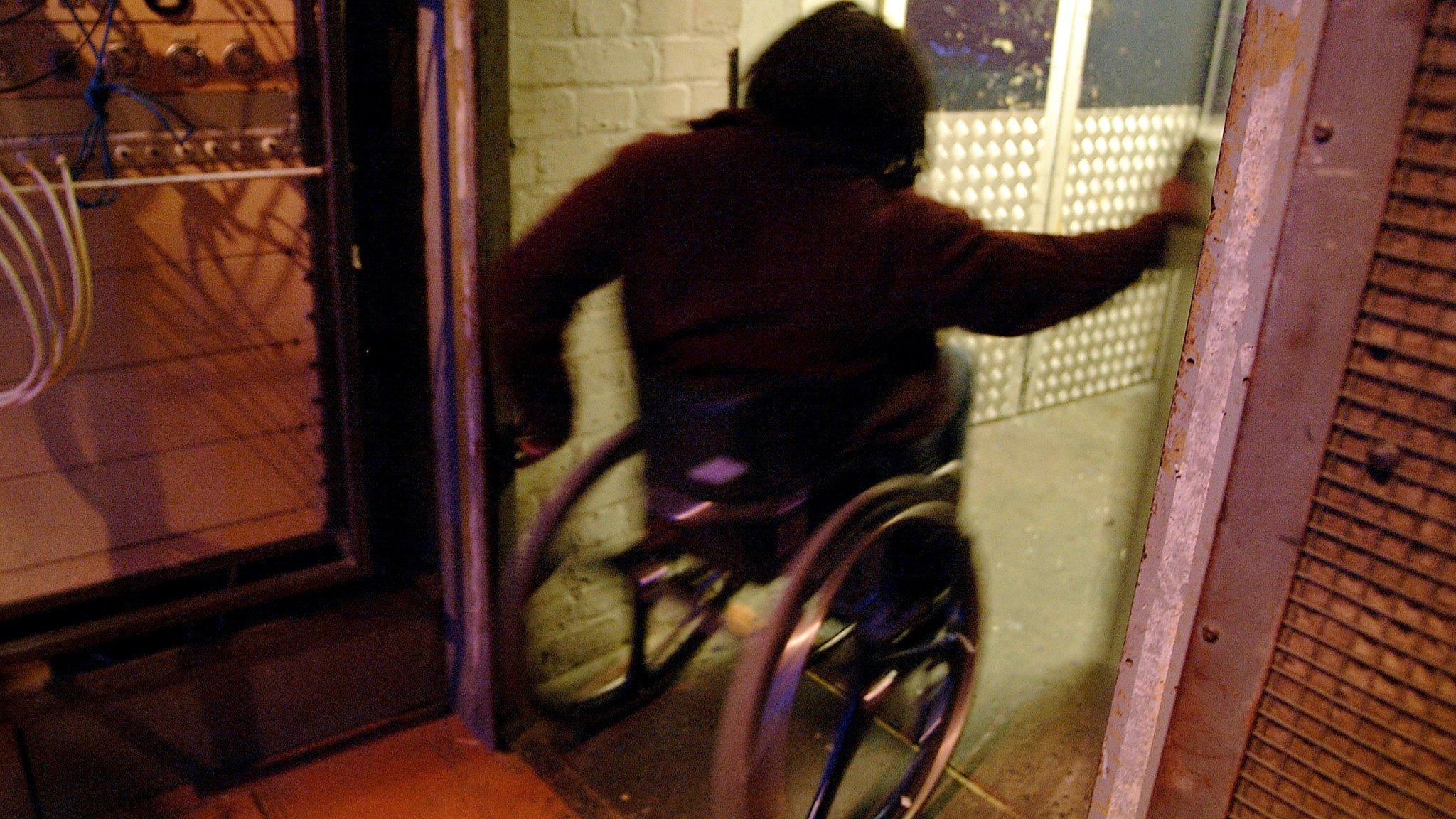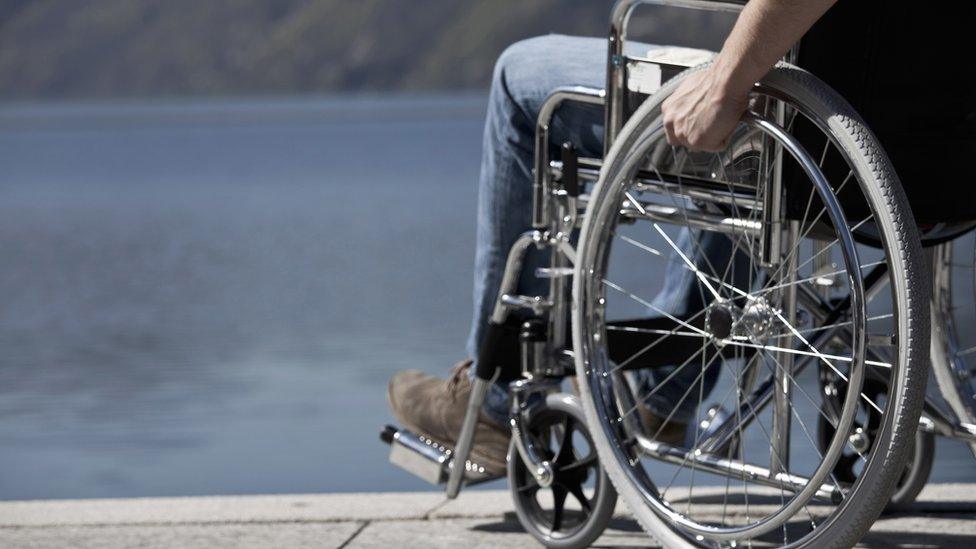Reality Check: Is a £3.7bn cut in disabled funding planned?
- Published

The claim: The government is planning to cut £3.7bn in funding for disabled people.
Reality Check verdict: The government is not proposing a £3.7bn cut to disability benefits but it is trying to overturn a ruling that more people should be eligible. This will not affect the claims of current claimants.
Last year, the government lost two cases in what is known as the Upper Tribunal - part of the courts system - about who should receive the Personal Independence Payment (PIP) and how much they should receive.
The PIP is for people who face additional costs because of a disability or long-term illness. It has two elements: the daily living component and the mobility component.
PIP assessments are based on a system of points, which are awarded to claimants according to the seriousness of their conditions.
The number of points an applicant receives determines whether they are eligible for either element of PIP and, if so, whether at the standard or higher rate.
The tribunal's rulings covered the two elements.
The first found that some claimants who require assistance to take medication or monitor a health condition should receive more points than the assessments currently give.
The second found that claimants who suffer overwhelming psychological distress when taking journeys should receive more points.
The effect of the rulings would be to increase the number of eligible applicants and increase the number of people who qualify for the higher rates.
The Department for Work and Pensions estimates that the total cumulative cost of complying with the tribunal's decisions would be £3.7bn over the next four years.
Disabilities minister Penny Mordaunt released a written statement, external on Thursday 23 February explaining that the government would seek to overturn the tribunal's decisions.
That can be done using a statutory instrument, external that amends the Welfare Reform Act 2012.
Labour opposes the reform and will seek to block the statutory instrument in the House of Lords and the House of Commons.
If the government succeeds in getting the reform through, it will mean fewer people will receive PIPs in the future and fewer people will qualify for the higher rates. But it will not cut the awards of current claimants.



- Published26 February 2017

- Published25 February 2017
